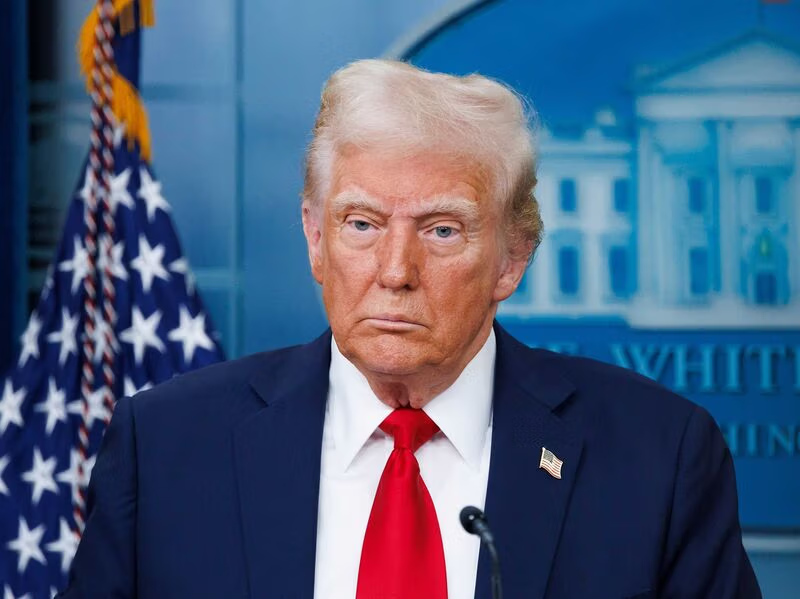In a significant diplomatic development, President Donald Trump announced Friday that Hamas has demonstrated a genuine willingness to pursue a “lasting peace” through its formal response to the United States-backed ceasefire and hostage-exchange proposal. The President subsequently issued a direct appeal to the Israeli government to immediately halt its intensive bombing campaign across the Gaza Strip, emphasizing that such a de-escalation is crucial for the safe return of hostages and the advancement of broader regional peace efforts.
The announcement, made through the President’s official Truth Social account, represents a notable shift in the U.S. administration’s public stance on the immediate management of the conflict. “Hamas’s reply signals a credible opening for peace,” President Trump stated. “I am therefore calling on Israel to immediately stop the bombing of Gaza. This pause is essential so that we can get the hostages out safely and quickly. The current security environment makes such operations far too dangerous to undertake.” The President further revealed that American diplomatic teams are already engaged in preliminary discussions to operationalize the agreement, underscoring that the initiative extends beyond the immediate Gaza crisis. “This is not about Gaza alone,” he affirmed. “This is about achieving the long-sought, comprehensive peace in the Middle East that has eluded us for generations.”
The President’s public statement was precipitated by a detailed communication from Hamas earlier on Friday, in which the group conveyed its acceptance of several core components of the Trump administration’s proposed roadmap to end the war. A key concession involves the release of all hostages currently held in Gaza, encompassing both living individuals and the remains of those deceased. In its statement, Hamas stipulated that this release would be executed “with the necessary field conditions for implementing the exchange,” a clause anticipated to be a focal point in subsequent technical negotiations. Demonstrating a commitment to the process, the group declared it is “immediately ready to enter into negotiations over the precise details of the exchange through the established mediators,” a group that includes Qatar and Egypt.
Perhaps the most politically significant element of Hamas’s response is its agreement, in principle, to relinquish its administrative control over the Gaza Strip. The group affirmed “its approval to hand over the administration of the Gaza Strip to a Palestinian body of independents (technocrats).” This proposed transitional governing body would be formed “based on a Palestinian national consensus and supported by Arab and Islamic backing,” signaling a potential end to Hamas’s nearly two-decade-long internal rule and opening a path for a revitalized Palestinian Authority or a new unified governance structure to assume responsibility for the territory’s civilian affairs and reconstruction.
The conditional acceptance from Hamas and the subsequent U.S. call for an Israeli ceasefire injects a new and potentially decisive dynamic into a conflict that has persisted for nearly two years, resulting in extensive casualties and widespread destruction. The conflict, which was triggered by the Hamas-led incursion into Israel on October 7, 2023, has seen numerous failed ceasefire attempts and escalating regional tensions. While this development marks the most promising diplomatic opening in recent months, officials and analysts caution that the path forward remains fraught with challenges. Critical details regarding the sequencing of the hostage release, the verification of security conditions, the composition and mandate of the proposed technocratic government in Gaza, and the guarantees for a lasting cessation of hostilities are all subject to complex negotiations that have yet to formally begin.
The international community, including key European and Arab nations, has largely welcomed the potential breakthrough, urging both parties to proceed in good faith. The coming days will be a critical test of the commitment of all involved actors Israel, Hamas, the United States, and the regional mediators to translate this fragile understanding into a durable agreement that can not only secure the release of the hostages and alleviate the humanitarian catastrophe in Gaza but also lay the groundwork for a more stable and peaceful political future for Palestinians and Israelis alike. The world now watches to see if this moment can be seized to end a devastating cycle of violence and open a new chapter in one of the world’s most intractable conflicts.






